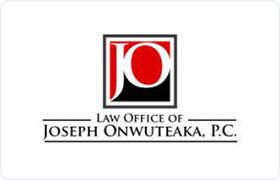Lincoln Real Estate Other Lawyer, Texas
Sponsored Law Firm
-
 x
x

Click For More Info:
-
Law Office of Joseph Onwuteaka, P.C.
8323 Southwest Fwy Suite 650 Houston, TX 77074» view mapSlip & Fall Accident Fighting Fearlessly For Your Rights
I'm committed to providing experienced and tenacious legal representation. I will fight for the best possible outcome in your case & won't give up, even when things get tough.
800-960-3430
Includes: Commercial Leasing, Commercial Real Estate, Condominiums, Conveyancing, Housing & Urban Development, Premises Liability, Residential Real Estate, Title Insurance
FREE CONSULTATION
CONTACTMitchell Ray Bearden
Commercial Real Estate, Oil & Gas, Business & Trade, Credit & Debt
Status: In Good Standing Licensed: 43 Years
Mark E. Krugler
Commercial Real Estate, Oil & Gas, Wills, Elder Law
Status: In Good Standing Licensed: 48 Years
Lauren Vally Kleinschmidt
Real Estate, Estate, Wills, Commercial Real Estate
Status: In Good Standing Licensed: 10 Years
R. Harry Akin
Commercial Real Estate, Litigation, Business & Trade, Credit & Debt
Status: In Good Standing Licensed: 61 Years
J. W. Johnson
Commercial Real Estate, Clean Air Practice, Employee Rights, Administrative Law
Status: In Good Standing Licensed: 57 Years
Leigha Brooke Schubert
Mediation, Family Law, Commercial Real Estate, Wills
Status: In Good Standing Licensed: 8 Years
Margaret A. Polansky
Commercial Real Estate, Real Estate, Wills, Estate
Status: Inactive Licensed: 47 Years
 Joseph Onwuteaka Houston, TX
Joseph Onwuteaka Houston, TX Practice AreasExpertise
Practice AreasExpertise
